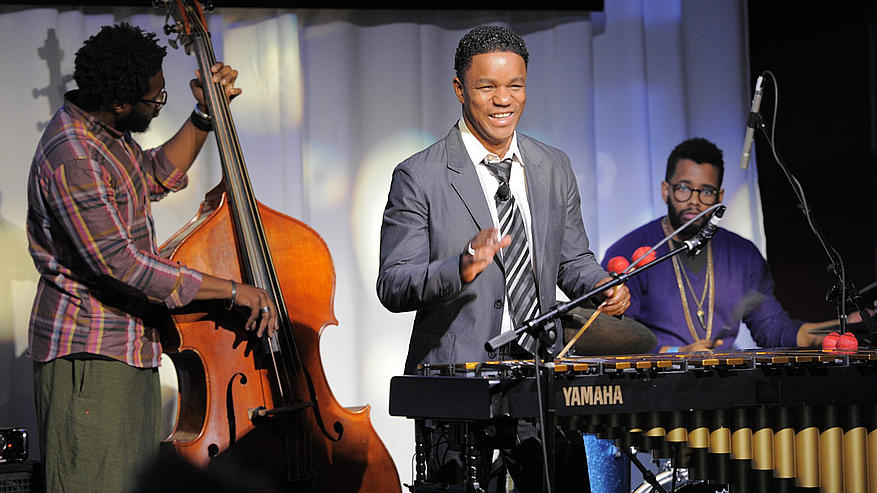
There Are No Mistakes on the Bandstand
There is no time like the present, especially if you’re an inquisitive, curious and innovative individual. The internet is at our fingertips no matter where we are. In fact, we can’t even have arguments the way we did before smartphones were available. If you were to have a debate in the break room of your workplace about whether the guy who constructed Jaws’ shark fin in Jaws 2 used paper mache or fiber glass, you could whip out your smartphone, promptly place your fingertip on your Safari icon and Wikipedia that useless information faster than you can say, “Shark!” I digress.
I was recently cruising the internet on my phone wanting to watch Jazz music being played by a good Jazz musician. So, I looked up Stefon Harris. Little did I know, Harris had his own talk on TED, which I proceeded to watch (www.ted.com/talks). Harris’ talk instilled in me the sentiment in the first sentence of this blog.
Not only does he play jazz, but he offers up a profound truth.
Harris’ speech There are No Mistakes on the Bandstand centers on the idea that the majority of humans perceive mistakes in an unconstructive way. He believes mistakes are mistakes because of the way people react to them. There is a quote during his speech that serves as the lynchpin to this grander idea: “The only mistake lies in that [we] are not able to perceive what it is that someone else did. Every ‘mistake’ is an opportunity.” These statements spill into other areas of life as well. Approaching your work day in this fashion can harbor a lot less disagreement and a whole lot less unconstructive criticism. There are many instances in the Information Technology field, and several others, in which a project undergoes a sort of light or heavy regression; where someone involved does something that could be perceived as “the wrong way” to go about performing their duty. This perception, however, could be accurate in that the execution of this duty was a step in a different direction, but “the wrong way” approach could be corrected. I like to take Harris’ approach in that any kind of execution of a duty lends itself an opportunity for improvement and, in general, movement toward other ideas. Too often, teamwork fails due to an inability to build on another’s ideas. Or, several people refuse to listen to their teammates, which produces a standstill. Harris touches on this idea as well: “If I really want to influence things in a certain direction, the best way to get there is to listen.” At TeamSoft, we practice this very dictum. There is no bullying of one another’s philosophies. There are no ideas executed at TeamSoft that aren’t built upon and looked at as a kind of forward motion. We like to leverage what we hear from our clients and employees because we know it inspires more thought and more ideas. The more forward motion we get, the more we work to build something powerful in the long run.

